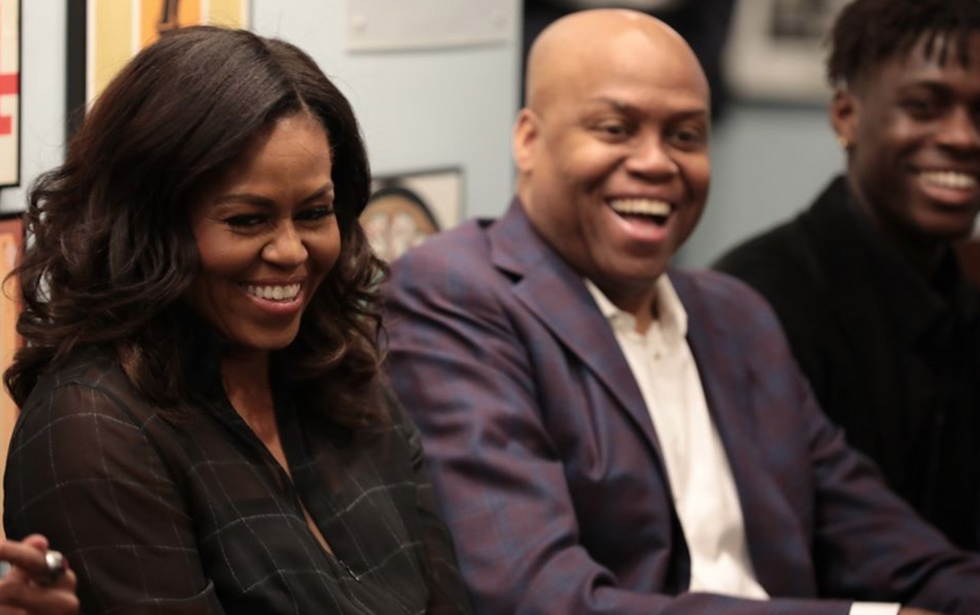I tend to abhor memoirs and autobiographies. I tend to find them self-deprecating of whoever is writing them. I also find them as a way for authors to say "My life sucks, give me $30 to explain why!" For these reasons (though I wouldn't equate this to all memoirs and autobiographies), I tend to stay away from these kinds of books.
But then comes Michelle Obama's book "Becoming." When she first announced her book, I thought the same exact thing that I thought about memoirs: pitying, self-lionizing, et cetera. I could honestly not care less about her book. The hype was building so much in Chicago, however, that my academic advisor at DePaul was able to get the entire university's political science student body to go to see her live for free on "Good Morning America." I considered going, until I had to *be there* at 5:15 a.m., at a hotel on the other side of town. But as how I've been lately with every idiotic thing Trump has done, I decided to go back in time to the Obama era by picking up her book.
And boy, was I wrong for not being excited sooner.
What sets Michelle Obama's memoir apart from her predecessors goes beyond her title as the first black First Lady. She has said that she lived in a house that was built by slaves for 8 years. Her predecessors owned slaves, while she is the descendant of one. In fact, this becomes a recurring theme throughout the entire memoir: that as someone both black and a woman, she would always have the feeling to work twice as hard to be seen as valid.
She begins "Becoming" with her early life, recalling the closeness of her family on Chicago's South Shore. From the increasing blight of her elementary school happening right before her eyes to the long commutes she would take to Whitney Young High School, to the feeling of "otherness" she felt at the predominantly white Princeton University, Obama writes a compelling and sometimes strenuous childhood that may sound familiar to fellow South Siders.
The First Lady also talks about the tremendous loss she experiences throughout her life. She lost her father, a man who she says brushed off any inconveniences he faces, to MS. She lost her college best friend at 26 from cancer. And perhaps the most shocking of all, she reveals she had a miscarriage while trying to conceive with Barack. The loss she endures shows us that Mrs. Obama, at the end of the day, is a woman who recalls events with candidness instead of pride.
Mrs. Obama also shows some of her fondest memories during her husband's administration, from becoming close with Queen Elizabeth II, sneaking out of the White House to watch the building turn rainbow when the Supreme Court legalized same-sex marriage nationwide, and the awkwardness of having Malia's prom date drive up to the White House to pick Malia up. And perhaps these anecdotal stories are what makes Michelle Obama so admirable. Not only is she an apolitical person (which she mentions a lot), but even as the wife of the leader of the free world, she still values her privacy and time to family.
So the bottom line is that Michelle Obama's "Becoming" is a definite must-read. If this book can impress a disdainful person like me when it comes to memoirs, then perhaps anyone (even those on the right) can definitely enjoy this book. Mrs. Obama's story is one filled with family, faith, perseverance, and a craving for something more. That said, maybe that can explain the title: this is the story of how Michelle Obama became Michelle Obama.

















